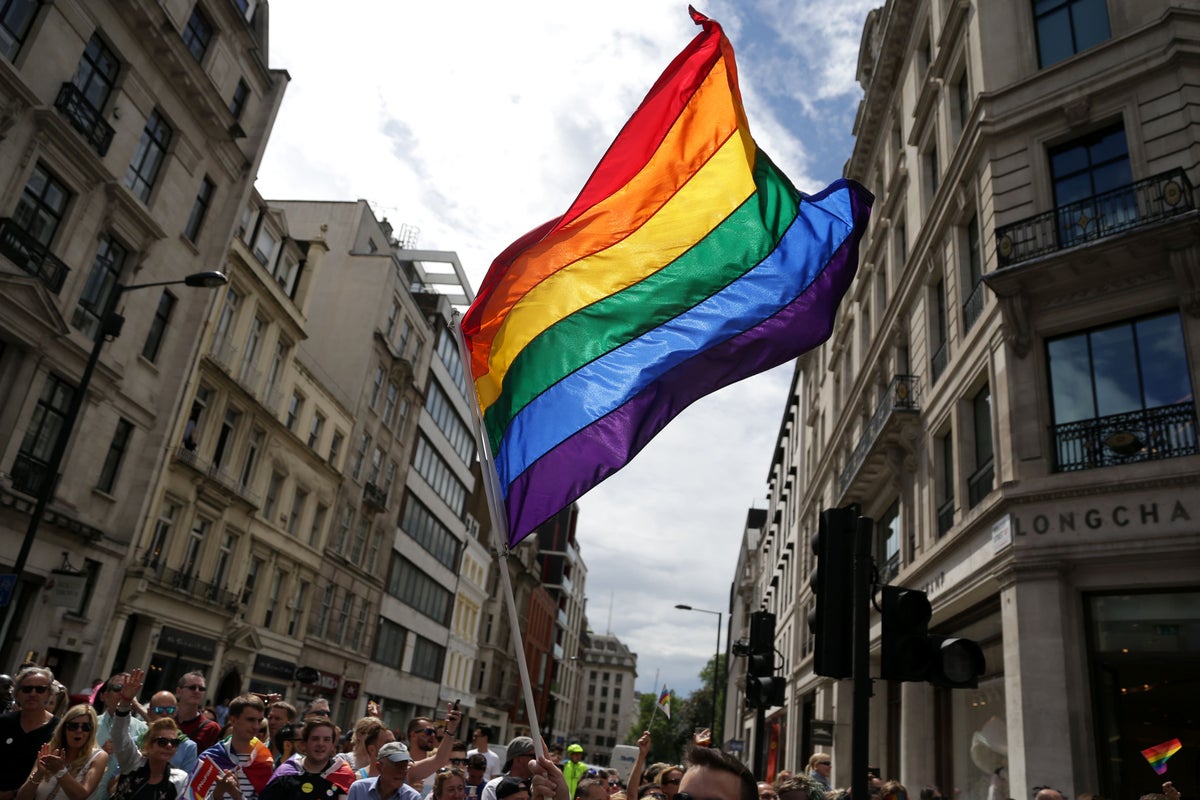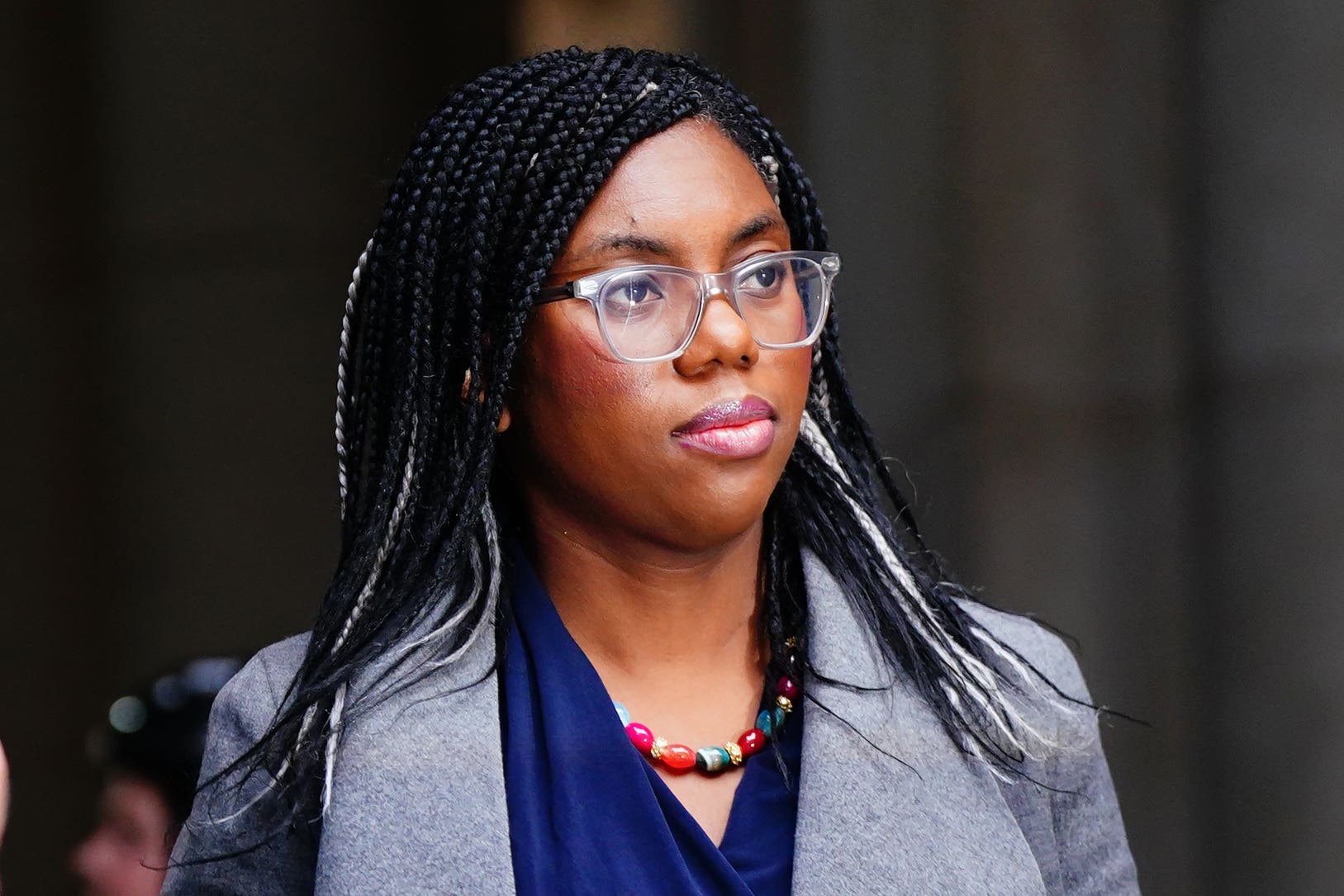
Rishi Sunak’s government has promised that draft legislation setting out how it will ban conversion therapy will include “everyone” – including transgender people.
However, equalities minister Kemi Badenoch is expected to write to all Tory MPs to express concerns about the risks in the legislation and efforts to avoid “criminalising” parents.
The cabinet minister, who stood on an “anti-woke” platform at the Tory leadership contest, is worried that it will be “hard” to make sure that there are no unintended consequences from the ban, according to The Telegraph.
Culture secretary Michelle Donelan said on Tuesday the government will soon publish a draft bill detailing its proposed approach to ban conversion practices on the basis of sexuality and gender identity.
But Home Office minister Robert Jenrick also said the government would have to be careful not to criminalise parents, teachers and mentors advising teenagers on their sexuality and gender.
Asked on Sky News if he understood Ms Badenoch’s concerns, he said: “Yes I do. We all support the abolition of conversion therapies which are malicious… But it’s a much more complex issue than it may seem at first glance.”
Mr Jenrick added: “What we don’t want to see is parents, loved ones, teachers, people who want to provide support and advice to children put off or criminalised from doing so.”
In a statement on Tuesday, Ms Donelan said the government recognised “the strength of feeling on the issue of harmful conversion practices and remains committed to protecting people from these practices”.
The government previously said its plans would not cover trans people. But Ms Donelan said the bill “will protect everyone, including those targeted on the basis of their sexuality, or being transgender”.
She added: “The legislation must not – through a lack of clarity – harm the growing number of children and young adults experiencing gender-related distress through inadvertently criminalising or chilling legitimate conversations parents or clinicians may have with their children.”

When the government initially announced its consultation into the conversion therapy ban, its “universal” proposals were intended to protect all LGBT+ people.
But last March, Boris Johnson dramatically dropped plans for legislation, with a government spokesperson saying it would look at how the existing law could be applied more effectively and explore other measures.
Within hours, a furious backlash forced a hasty retreat and a government source was quoted as saying legislation would be included in the Queen’s Speech. Mr Johnson defended the decision not to include trans people, saying there were “complexities and sensitivities” which needed to be worked through.
Critics told the government to stop making “pathetic excuses”, protesters took to the streets and so many LGBT+ groups pulled out of the government’s landmark LGBT conference that it had to be cancelled.
Senior Tory MP Alicia Kearns, who has long campaigned on the issue, said she was glad the ban was “finally happening”.
The backbencher said: “We have a timeline, we know it’s going to be a fully inclusive ban and I am really delighted because it is right that we end this heinous crime that allows charlatans and quacks to prey on some of the most vulnerable members of our society,”
Nancy Kelley, chief executive of Stonewall, welcomed the statement, but noted that there had been “delay after delay” since the government first promised to ban conversion practices in 2018. “The UK government must publish the bill and an imminent timetable as soon as possible.
Downing Street indicated the legislation could be passed before the next general election. “We want to do it in this parliament, that’s my understanding,” the PM’s official spokesperson said.
“We want it to go through pre-legislative scrutiny in this parliamentary session because we think that’s important because some of the issues we know are not fully resolved. That’s the process that will get under way in the first instance.”







